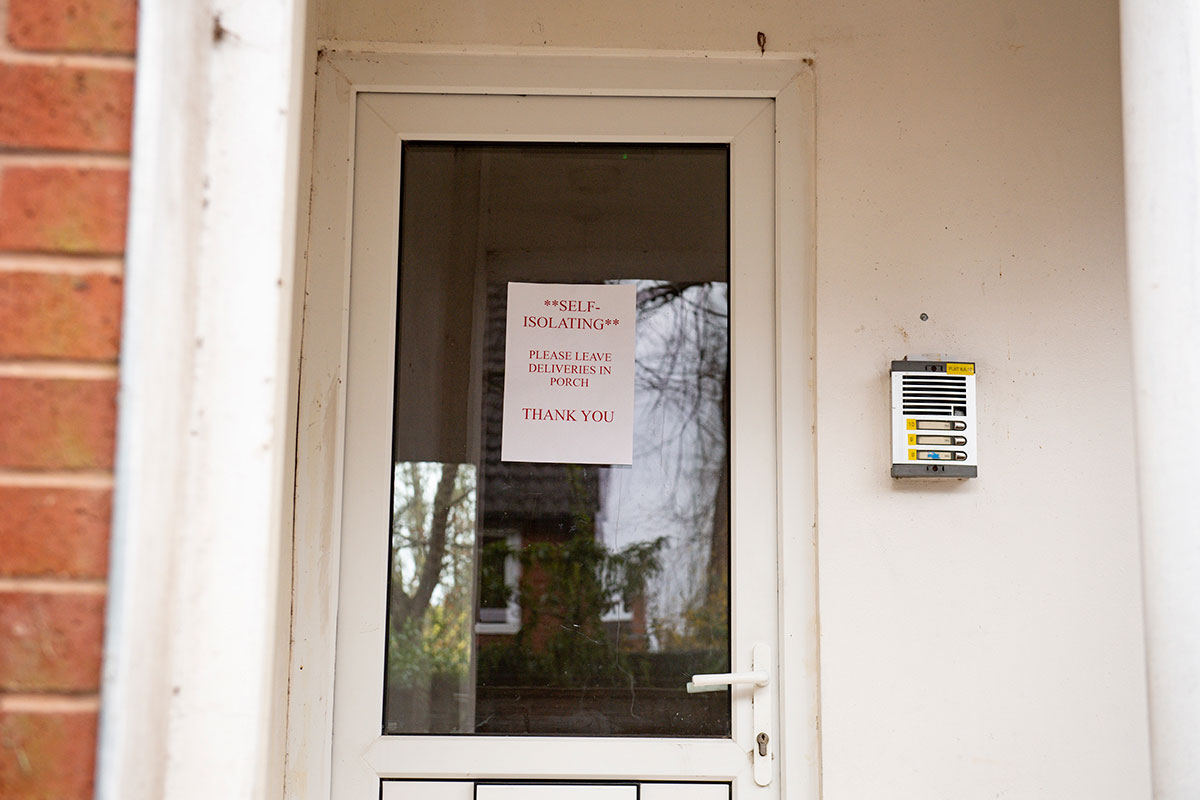You are viewing 1 of your 1 free articles
How the sector is preparing for coronavirus
The effects of coronavirus are being felt around the country, including in the social housing sector. Dominic Brady finds out how landlords are reacting. Pictures: Getty and Press Association
When coronavirus was first reported in the UK, the country held its breath to see how quickly and how far it would spread across these shores.
Six weeks later, the virus that has killed more than 4,000 people globally has become established – with 460 cases confirmed in the UK at the time this article was published. With coronavirus now declared a global pandemic, housing associations are on high alert in order to protect tenants and staff.
The implications of the outbreak are widespread within the social housing sector, and top-level discussions are now under way to consider how housing associations can mitigate against the increasing number of cases.
Many landlords are already in emergency mode with coronavirus planning in motion, so that essential services can continue while tenants and staff are protected. Several have already appointed coronavirus leads to co-ordinate the response and are liaising with occupational health teams to decide on how to proceed safely.
Sinéad Butters, chief executive of Aspire Housing, explains that the organisation has taken a “zero-tolerance” approach to any staff who have travelled from affected countries or displayed symptoms.
Gary Orr, chief executive of Radian, says the association has held its own ‘COBRA meeting’ to decide on an approach. He also said that Radian is developing a playbook for the organisation to deal with an outbreak in their area and improve lines of reporting in the business.
High-level executive meetings should be expected in response to such a serious and fast-moving situation, but the very nature of the outbreak presents issues for the logistics behind arranging these types of meetings.
At a time when Public Health England is recommending ‘social distancing’ – which involves methods such as working from home, reducing social activity and avoiding non-essential travel – housing associations may find it hard to operate in the usual way.
Tony Stacey, chief executive of the South Yorkshire Housing Association, predicts that over the coming days and weeks, many organisations will be reconsidering how they communicate.
“My sense is by the end of next week, meetings will almost be a thing of the past and people will be dusting down their video conferencing systems,” he says.
“I think everybody in corporate world is going to be going through their diaries thinking whether they need to travel and do face-to-face meetings.”
This process is already under way at Staffordshire-based Aspire, where they have cancelled two staff briefings to address around 400 staff.
Fears that the virus will spread further are also being felt at the ground level, with tenants expressing concern about inviting staff into their homes to conduct repair works.
Mr Stacey identified one instance where a tenant had urged a contractor not to come to the property as they were displaying potential symptoms.
He says: “I think it is starting – I think we will see our tenants not wanting our contractors to visit and I would guess, for the time being at least, the contractors probably will want to carry on going into homes and doing repairs.”
“I don’t know what we will do if more people start to say, ‘No I’m not willing to go in and do the repairs’.
“It’s fine for office staff to work from home but we have over 50 people in our home maintenance team and that’s their job – going into tenants’ homes.”
A mounting repairs backlog would pose its own risk to tenants’ safety and comfort.
Keith Simpson, chair of the Direct Works Forum (DWF), which represents associations and councils that deliver their own repairs and maintenance works, said it is imperative that the sector tackles how it will approach sending people into homes where infected people may be staying.
In a meeting on Monday, DWF members discussed a number of approaches – from reducing repairs services to emergency only, to increasing training for customer service and frontline operatives on how to deal with situations regarding the virus.
Just as there is a threat of contractors stopping repair works, many tenants could also be forced to self-isolate and take time off work should they contract the virus or be close to someone who has contracted it.
A self-isolation sign outside a home, which instructs where deliveries should be left
This means that for those tenants who do not receive sick pay there is a chance they could fall into arrears if they are out of work, Ms Butters explains.
There are fears that workers on zero-hour contracts will be unable to obtain statutory sick pay if they are forced to self-isolate.
Self-employed workers have been advised to apply for Universal Credit if they are out of work because of the virus, however payments can still take several weeks.
Tom Murtha, former chief executive of Midland Heart, says that well-run housing associations should be able to ride out a short period of increased tenant arrears but noted that no one knows how long the virus will last.
“Most businesses with a reasonable cash flow should be able to keep going in the case of increased tenant arrears and it should be part of the planning,” he says.
“My sense is by the end of next week, meetings will almost be a thing of the past and people will be dusting down their video conferencing systems”
Mr Murtha was chief executive of Midland Heart at the time of the swine flu outbreak in 2009 and recalls the comprehensive approach the housing association took to plan for escalations in the epidemic.
“We would meet regularly for two to three weeks at the peak of the outbreak and I would be getting reports daily,” he says.
“One thing that was very clear was that we already had in place a well-developed business continuity plan. Associations should not be working on them now – they should have plans in place already.”
The consensus from stakeholders is that should the outbreak escalate it will be care homes where the impact is felt most acutely, as older people are considered to be at greater risk.
Rishi Sunak announced a range of financial support packages to businesses to mitigate the impact of coronavirus in the Budget (picture: Parliament TV)
Eight people in the UK have now died after contracting coronavirus – the majority aged over 60 and with underlying health problems.
Care England, the representative body for independent care providers, says it is receiving a “high number of questions from members regarding concerns and next steps the government intends to take”.
Care home providers have been afforded some extra flexibility from the Care Quality Commission, the watchdog for English care providers, which said it will take a “pragmatic and flexible approach to how and when we regulate”.
Similarly, the Scottish Housing Regulator has vowed to “take account” of the extra pressures brought by the outbreak when assessing landlords’ performance.
This will bring short-term relief for the landlords that are spinning plates trying to maintain a good service while preventing further spread of the virus, but the question remains as to how long they must operate under such challenging circumstances.
But whether it is weeks or months, there is no doubting the crucial role the social housing sector will play in the country’s response to the disease, and ultimately how quickly it can overcome it.
Sign up for our daily newsletter
Already have an account? Click here to manage your newsletters
















